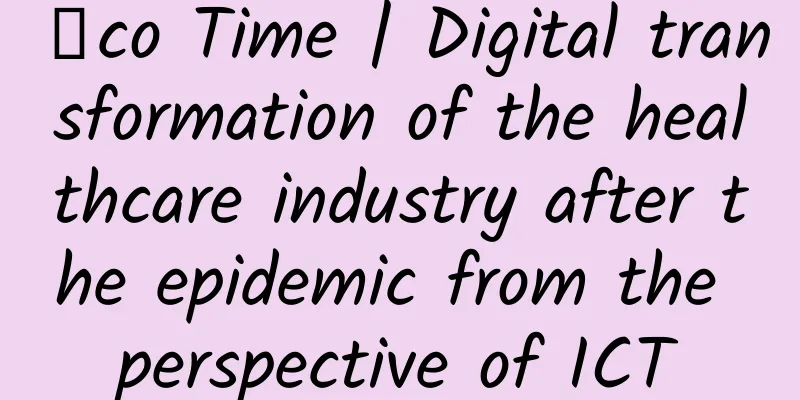10 IT skills that are getting paid the most today

|
From ERP and compliance to data visualization, these 10 IT skills have seen the fastest growth in market value over the past year, according to research firm Foote Partners.
Market demand for specific IT skills can fluctuate quickly as emerging trends emerge and interest in legacy systems waxes and wanes. While salaries for a role (e.g., data scientist) may spike due to a lack of qualified talent, certain unique IT skills may become popular for a period of time, with organizations paying more for talent with this specific skill set, thanks to opportunities within their industry or strategic shifts in their overall business. To get an accurate picture of these high-paying skills, Foote Partners has been tracking IT skill salary data since 1999 to understand which skills and certifications provide the biggest pay boosts at any given time. Foote Partners' quarterly "IT Skills and Certification Salary Index" uses data from 3,305 private and public sector employers in 83 cities in the U.S. and Canada to track the rise and fall in the market value of various skills, as well as track the salaries paid for more than 1,000 technical skills and certifications. As IT jobs become more complex, questions about how positions are defined across companies and how employers should compensate people with different skill sets in the same role have become more murky. Paying more can help employers track the value of specific skills, so they know how competitive the market is for people with those skills and how much to pay on top of base salary. As the Foote Partners report notes, over the past year, uncertified IT skills have outpaced certified IT skills and are growing in value faster than ever before. However, the value of skills can fluctuate, often changing over a three-month period to meet market demand. This trend not only affects new skills, but traditional skills also often increase in value if an organization needs them to work on its new technology or legacy systems. According to the data, just over 29% of the skills in the report changed in value in 2018. Of the 159 skills that changed in value during this time, 87 saw an increase in market value. According to the report, compensation for non-certified technical skills is currently at a 19-year high. Here are the 10 non-certified IT skills that saw the most growth in market value in 2018. 1. SAP EHS (Environment, Health and Safety) Software SAP's environmental, health and safety (EHS) management software is designed for industrial and manufacturing industries, focusing on safety, industrial hygiene, occupational health processes and compliance. According to a report by Foote Partners, high salaries for IT professionals with SAP EHS skills increased by nearly 68% in 2018, far exceeding any other IT skills, certified or uncertified. As manufacturing companies increasingly undergo digital transformation and compliance work continues to rise, SAP EHS skills are likely to continue to be popular in the market in the coming year. If you are looking to improve your SAP EHS skills or get certified, you can directly participate in SAP's training courses. 2. General Data Protection Regulation (GDPR) GDPR has become a hot skill, with its value increasing rapidly as businesses around the world scramble to hire qualified professionals to help them meet the May 25, 2018 deadline for compliance. “The objectives of the GDPR are primarily to give individuals control over their personal data and to simplify the regulatory environment for international business through harmonized regulations within the EU. The regulation also addresses the processing of personal data transferred outside the EU and EEA. It is clear that the increase in salaries over the past 12 months has been driven by employers trying to navigate this major change to the way they do business,” said David Foote, co-founder, principal analyst and chief research officer at Foote Partners. The market value of GDPR skills grew by 62.5% during 2018. You can upgrade your GDPR skills and acquire GDPR tools and knowledge through various online training courses offered by companies such as Lynda, Udemy, IT Governance USA, and Thomson Reuters. 3. Lawson Tools Russell Reynolds is an ERP software company that provides solutions for accounting, human resources, and manufacturing. The company offers two main lines of products, one of which is service-oriented, focusing on human resources and customer service, while the other focuses on manufacturing and distribution operations. Lawson is a relatively old ERP tool that Infor acquired when it bought Lawson Software in 2011. After the acquisition, Infor launched the "Infor Certified Lawson Security Authorization Consultant V10" certification in 2017, which may drive adoption of the skill, Foote said. Salaries for Lawson certified skills increased 43% in 2018. If you want to expand or improve your Lawson skills, the company offers tailored e-learning packages to help you quickly master your chosen product. 4. SAP Forecasting and Replenishment Software (SAP F&R) SAP's "Forecasting and Replenishment (F&R)" software is designed to help retail and food companies automate forecasting and replenishment planning. The software can help companies find ways to reduce waste, increase profits and improve customer and employee satisfaction. Companies can conduct in-depth analysis of complex life cycle processes to discover common trends, risks and inefficiencies when necessary. “F&R is an advanced multi-echelon supply chain optimization tool that streamlines overall inventory based on integrated forecasts. Achieving optimization and improving supply chain relationship management (SCM) efficiency is making these two skills popular in the market,” Foote said. The value of the SAP Forecasting and Replenishment (SAP F&R) software skill grew by 42.9% in 2018. If you need to improve your SAP Forecasting and Replenishment skills, you can attend face-to-face workshops from SAP to quickly acquire this skill. 5. SAP Point of Sale Data Management (SAP POSDM) SAP's Point-of-Sales Data Management (POSDM) software is designed to help businesses "reduce inventory costs and gain critical insights into customer buying patterns and behaviors," the company said. It is a point-of-sales management solution that allows sales data to be automatically transferred from the cash register to back-office systems quickly throughout the day. The growing demand for “point-of-sale data management” skills, as well as for “forecasting and replenishment” skills, “is driven by the hot retail environment and retailers’ efforts to please demanding customers. “Point-of-sale data management” reduces inventory costs by gaining critical insights into customer buying patterns and behavior,” Foote said. The value of SAP Point of Sale Data Management skills has grown in lockstep with Forecasting and Replenishment skills, increasing by 43% in 2018. If you want to add SAP Point of Sale Data Management skills to your resume or brush up on your knowledge of Point of Sale Data Management, you can attend SAP’s four-day classroom workshop on the topic. 6. SAP FS (Insurance) Software As the name suggests, SAP FS Insurance software is designed specifically for the insurance industry. It can help organizations streamline operations, improve customer engagement, and gain insight into potential risks. The software supports a variety of insurance industry needs, including business networks, agility, innovation, employee engagement, and financial planning and analysis. The value of SAP FS Insurance software skills has been growing steadily throughout the year, up 33.3% from the previous year. You can take training courses from SAP to improve your skills. 7. Java SE / Java EE Platform Java SE (Standard Edition) is the core of the Java programming platform, while Java EE (Enterprise Edition) builds on Java SE to provide enterprise-specific features, including libraries for database access. "Over the years, salaries for Java skills have seen a jagged pattern in our 'IT Skills and Certification Salary Index' report because of the ubiquity of the skill in the market. There are always new applications for the skill, which periodically drives its salary up, and then its value declines as the supply of skilled talent for a specific product or technology trend begins to meet demand," said Foote. Java SE and Java EE skills have grown in value by 33% over a 12-month period, which is a significant increase for a skill and programming language that has been around for as long as Java. If you want to learn Java or want to improve your existing skills, both online and in-person courses will help you learn. 8. Microsoft Visio Microsoft Visio is a data visualization program that allows users to take complex data and transform it into easy-to-read charts, graphs, and flow charts. Microsoft Visio software for data visualization has been around for more than 25 years, but has only recently risen in value, according to Foote. By packaging Visio into its 365 suite, Microsoft was able to raise awareness of the software in 2017, which is already widely used in the enterprise. It is a valuable tool for organizations as they try to make better use of the data they collect. The value of Microsoft Visio software skills increased by 33% in 2018. If you are looking to add this skill to your resume or want to improve your current Visio software skills and abilities, you can take Visio training courses offered by Microsoft. 9. Data Visualization As more companies rely on data analytics and business intelligence for decision making, risk assessment, and process improvement, the demand for data visualization skills continues to grow. “Data virtualization is the modern equivalent of visual communications. It makes complex data easier to access, understand and use. What’s driving these skills’ high pay is the development of the next generation of the Internet of Things and the high level of digitization in today’s overall business environment,” Foote said. The market value of data visualization skills remained stable for most of the year, with a 31% increase in value over the year. This is a broad set of skills that encompass multiple products, tools, and concepts. You can easily find online or in-person courses for your industry, profession, or specific software. 10. Quantitative analysis/regression analysis Quantitative analysis and regression analysis are quantitative research methods used to model and analyze large amounts of data with multiple variables. These two types of analysis are important skills to have as businesses want to make sense of all the data they have collected over the years. These quantitative research skills are also relevant to the growing need for data analysis. Foote said data visualization helps inform quantitative research and regression analysis models, as well as algorithms used for risk assessment modeling. The market value of quantitative analysis and regression analysis grew by 30.8% in 2018. You can find a plethora of online courses in quantitative and regression analysis from companies like Coursera and Edx, as well as from multiple universities across the country. |
<<: Introduction to TCP/IP Network Model
Recommend
SASE vs. SD-WAN: Which one do you pick?
SASE (Secure Access Service Edge) and SD-WAN are ...
Free VPS, Free VPS Merchants with $50-100, Free Trial VPS
The tribe mainly shares cheap VPS hosts. Although...
China Mobile's 10-year old users will enjoy four major privileges. Netizens: How can China Unicom put its face?
For a long time, the relationship between the thr...
What is 5G IoT?
What is non-cellular 5G? I imagine most readers a...
5G meets WiFi on a narrow road, walking hand in hand in a friendly way
Recently, both domestic and foreign operators hav...
Wi-Fi 6 and 5G: Which is more secure, and where will our data go?
Historically, one of the biggest drawbacks of Wi-...
In the new communications era, what opportunities and challenges does video compression technology face?
With the development of communication technology,...
Why is the 5G signal weak and the network keeps dropping? Here is the truth
In recent years, "5G" has been a verita...
Computing power networks connect the digital society. How should operators seize the new opportunities of the era?
Computing network is an emerging technology conce...
The Internet of Things in the 5G Era
The government envisions making India a $5 trilli...
There is no optical communication without optical modules, is it true?
Over the past 100 years, human beings have develo...
In the post-epidemic era, what is the effect of 5G infrastructure investment?
[[378112]] Looking back at 2020, "5G" m...
An article to help you understand HTML5 MathML
[[347913]] HTML5 can use MathML elements in docum...
5 ways 5G will change the world
As communications technology goes, the switch fro...
See all the things a service mesh can do
Service mesh adoption continues to grow, and some...









